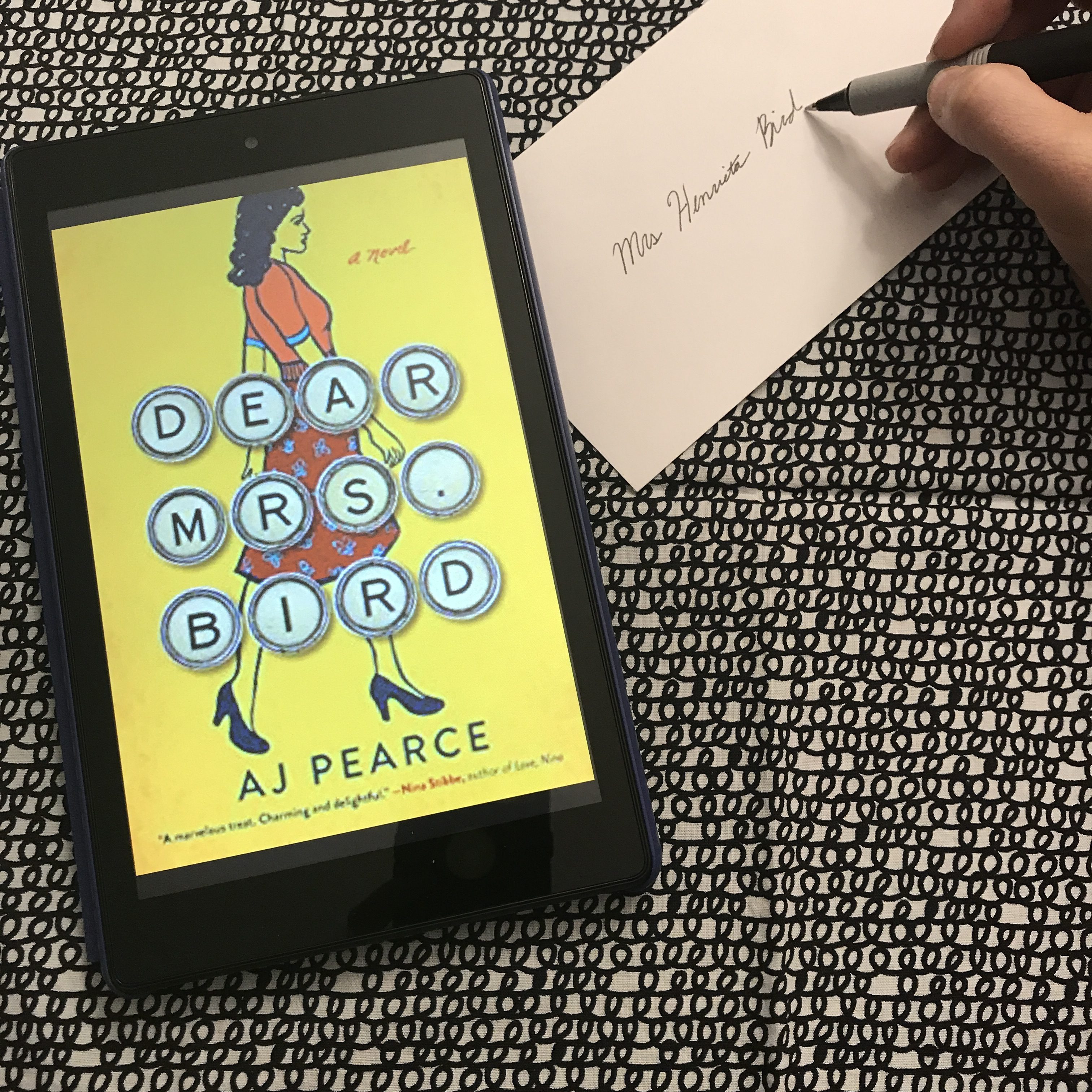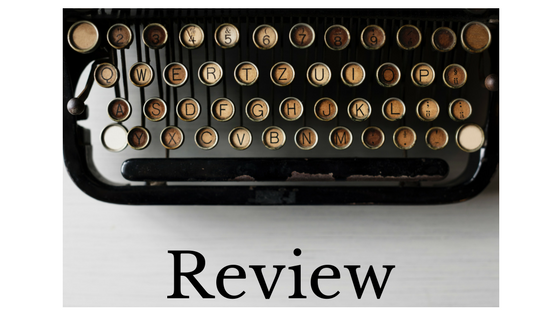Sorry for being missing in book-action the last few weeks, friends. I naively thought that when my boss was out of town for three weeks and I was in charge of the 22 people she usually supervises that I’d still have time for book-reviewing. That was not the case. But Beth is back and I’m only in charge of my nine again so let’s celebrate with a book review, shall we?

I received a digital ARC of Dear Mrs. Bird from Scribner on NetGalley. I’m grateful to Scribner for their generosity and am happy to post this honest review. All opinions are my own.
Synopsis
Emmy Lake, is a small-town girl living in Blitz-sieged London who dreams of being a real journalist. For now, she’s got a respectable job at a law firm, an apartment with her best friend, and her volunteer work answering emergency calls for the Auxiliary Fire Service. She stumbles upon an advertisement for a job in the London Chronicle and promptly applies, visions of her life as a Lady War Correspondent traipsing through her daydreams. Except, the job isn’t with the London Chronicle, it’s with a failing women’s magazine, as a typist for Mrs. Henrietta Bird, an advice columnist who refuses to print answers to anything unpleasant. Emmy bucks up and settles in to her new role, only to find herself dismayed at Mrs. Bird’s refusal to respond to readers with real needs. So Emmy starts to write back. Both expected and unexpected mayhem ensue.
Tone & Writing
Dear Mrs. Bird was, for a book about World War II in which some truly awful things happen, surprisingly cheery in tone. It is rare to find a book about World War II that manages to keep a light tone while writing in an appropriate manner about grave topics. The writing here is charming but never flippant. It’s popular fiction but still flowed and wasn’t jarring like Lilac Girls was for me.
It’s clear Pearce did her research on women’s magazines and WWII-era slang—indeed, it was the slang that by golly nearly put me over the top at first. It felt a little forced initially and contributed to Emmy seeming a bit too wide-eyed but that feeling dissipated after the first few chapters and I settled in to the language choices. Overall, the book is earnest and hopeful in a way that was reminiscent of The Guernsey Literary and Potato Peel Pie Society. I wouldn’t go so far as to call them a read-alike but I do think someone who enjoys one will enjoy the other.
Emmy
Admittedly, I was a bit taken aback at how light Dear Mrs. Bird started off—Emmy wasn’t clicking with me in the first few chapters and a frivolous female lead in a book about World War II was the last thing I wanted to read. After a few chapters I got used to her and what seemed frivolous about Emmy revealed itself to be an almost-indefatigable optimism combined with a heightened sense of right and wrong. Men and women on the home-fronts of World War II were told to buck up and put on a good face—Emmy is what it looks like when a character takes that encouragement to heart, even as bombs literally fall around her. As the plot progressed, the book took surprisingly poignant turns that made me care deeply about her by the end.
There wasn’t much that I saw in Emmy that I really identified with—even when I’m trying to put on a good face, I can’t be that cheerful or earnest and I can’t see myself making some of the choices she made. With that said, she endeared herself to me and I started wanting the best for her. Though I don’t think Dear Mrs. Bird will become as iconic as Anne of Green Gables, in some ways Emmy reminded me of Anne in her optimism and wanting the best for those around her. Both are clearly intelligent and yet do some frightfully silly things in their quests to do the right thing. If you’re a reader who identifies with Anne (I used to think I was and have sadly had to accept that I’m far too cynical to be Anne. I’m probably Marilla. But I digress)…if you’re a reader who identifies with Anne, you will probably be able to settle in to Dear Mrs. Bird faster than I did because you may identify more quickly with Emmy. If you’re not an Emmy-Anne, Dear Mrs. Bird is still a delightful book. Anne won over Marilla and Emmy won me over.
Recommended
If All the Light We Cannot See is on one end of the WWII literature spectrum and The Nightengale somewhere in the middle, Dear Mrs. Bird is the opposite end from All The Light. The writing is light and the ending unambiguous and not soul-crushingly depressing. I recommend it for readers who enjoy more popular fiction or loved Guernsey.
Notes
Published: July 3, 2018 by Scribner (@scribnerbooks)
Author: A.J. Pearce (@ajpearcewrites)
Date read: July 1, 2018
Rating: 3 ½ stars

